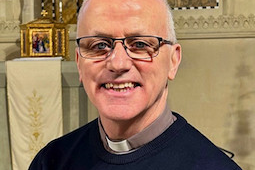The Mighty Celt; Crash
The Mighty Celt This film has a good feel about it. In its quite brief running time, it shows us something of contemporary Northern Ireland, the growing prosperity and the mood for peace rather than troubles and war (despite the remnant of diehards how remain bitter). But, that is not the main emphasis. This is a story of a boy and dogs. It is a story of family. Above all, it is a story of hope despite hardships and cruelty. While the featured stars are Robert Carlyle as a former IRA soldier on the run but settling home again, Gillian Anderson as the single mother of Donal and Ken Stott as a harsh greyhound trainer, the film belongs to young Tyrone McKenna as 14 year old Donal. He is completely convincing as a sometimes slow but very good-natured lad (though not above some smoking and swearing) who proves that portraying sentiment is very different from sentimentality. While the aftermath of the troubles haunt the adult characters and reminders of the violence are scattered through the film, this is a film that advocates peace. Robert Carlyle is at his best becoming a father-figure to Donal, especially persuading him that there is no future in revenge and guns. Gillian Anderson is a long way from the X Files, convincing as a lonely woman who remembers the war with anger but who has brought up her son well. For those who like boy and dog films, this is one is very good despite some sad and sudden brutal scenes. The Mighty Celt might be a legendary hero of he comic books, but it is a great name for a champion greyhound racer who is trained with skill and devotion by Donal. We are drawn into the life of the characters and, even though we get to know them for a comparatively brief time, they are memorable. Crash Here is a solid drama with important themes that would be of interest to adult audiences. However, Crash contains a number of very angry characters who express themselves forthrightly in rough language that may not be to everyone's taste. Some months ago when Crash was released in the United States, a Daughter of St Paul, Sister Rose Pacatte, with whom I work on books creating a dialogue between the scriptures and films, wrote to suggest Crash for the volume we are presently working on. It is a book on The Beatitudes and the Seven Deadly Sins. It seemed a strong film to illustrate weakness and sinfulness in human nature but with the possibilities of forgiveness and redemption. As noted, Crash is a film about anger. It is also about pride, covetousness, greed, lust, sloth and envy. In fact, the film is a serious reminder that we are all affected by original sin, that we are affected by personal sin, both sins of our own and sins of others, and there are serious consequences. An initial voiceover tells us that in cities, people bump into each other all the time, that they have the experience of literally touching and being touched. However, in Los Angeles, nobody walks. People all drive and avoid human touch. The voice wonders whether people crash just to make human contact. The film has a great number of characters and they soon start bumping into each other, sometimes with dire consequences, sometimes with hope. The immediate issue that alerts us to the film's seriousness and, indeed, can put the audience on edge, is that of racism. Like many modern cities, Los Angeles is a melting pot of peoples and cultures. While respect for different people is a continual hope, this does not always happen in practice. African Americans and whites clash abusively. Asians are insulted. People of Middle East origins are taunted about their lack of clear English and humiliated. The result is smouldering rage and outbursts of irrational violence. Sandra Bullock, as a wealthy and arrogant District Attorney's wife, states at the end of the film that she had erupted against blacks who hijacked her car but that that was not really the cause of her anger. She says she wakes up angry every day. Of course, she probably has the least reason for anger. A black television director (Terence Howard) submits meekly to taunts and is shamed as a bigoted police officer (Matt Dillon) manhandles his wife (Thandie Newton) when they are pulled over for no real reason. The partner (Ryan Philippe) later does a good deed for the director but is soon a violent victim of society's subconscious racist suspicions. On the other hand, we see the bigot caring for his ailing father and involved in rescuing a woman from a crash. Don Cheadle is a competent police officer, having an affair with his partner, trying to care for his erratic mother, too busy to care for his delinquent brother (Larenz Tate) and being offered promotion by authorities if he complies with a cover-up by Internal Affairs. While there are angry sequences, there are some moments of real beauty and goodness: the rescue from the crashed car and a tender scene between a locksmith and his five year old daughter which precedes one of the most frightening scenes where a frustrated Arab draws a gun on the locksmith. The film was co-written and directed by Paul Haggis who was screenwriter for Clint Eastwood's Oscar-winning film, Million Dollar Baby. He has created a serious portrait of flawed human beings, not shirking the ugliness of their malice, but ultimately reminding us that we cannot judge people on surface evidence. Haggis also enables us to leave the cinema believing in forgiveness and hope. LONDON - 12 September 2005 - 953 words


















